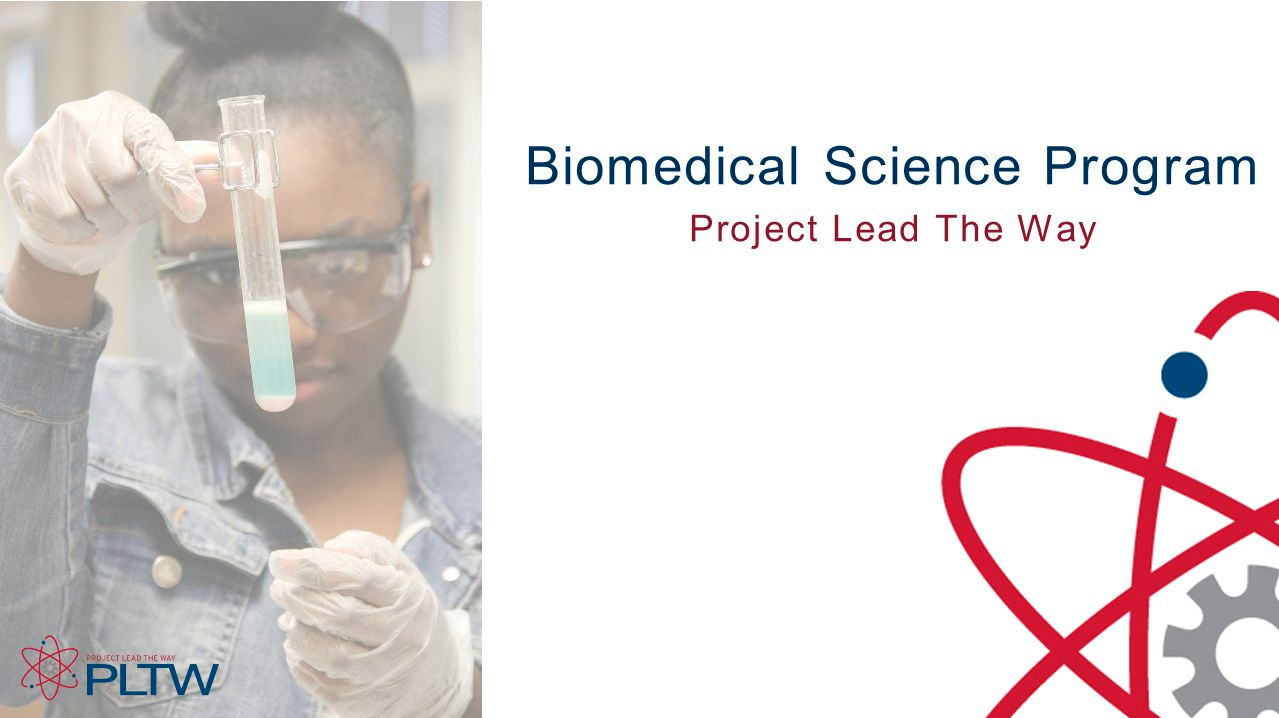Biomedical Sciences Courses

Phone:
Email:
Degrees and Certifications:
Biomedical Sciences Program
"The Project Lead the Way (PLTW) Biomedical Sciences (BMS) Program is a sequence of courses which follow a proven hands-on, real-world problem-solving approach to learning. Students explore the concepts of human medicine and are introduced to topics such as physiology, genetics, microbiology and public health.
Through activities, like dissection, students examine the processes, structures and interactions of the human body-often playing the role of biomedical professionals. They also explore the prevention, diagnosis and treatment of disease, working collaboratively to investigate and design innovative solutions to health challenges of the 21st century, such as fighting cancer with nanotechnology." To learn more about Project Lead the Way visit https://www.pltw.org/curriculum/biomedical-science#curriculum
Building a Strong Foundation for College and Career
PBS - Principles of Biomedical Science (1st year)
Analyze the evidence found at a crime scene and help the medical examiner uncover clues left on a body to solve a mystery. Question, diagnose, and propose treatment and care for patients in a family medical practice. Track down the source of a mysterious outbreak at a local hospital. Access and stabilize a patient during an emergency and prepare for medical surge and mobile medical care. Collaborate with professionals in other fields to innovate and design solutions to local and global medical problems. Whether seeking a career in medicine or healthcare or simply looking to for the challenge of real-world problems, students in Principles of Biomedical Science will practice how to think creatively and critically to innovate in science and will gain practical experience with experimental design and the design process.
HBS - Human Body Systems (2nd Year)
MI - Medical Interventions (3rd year)
Students will investigate the variety of interventions involved in the prevention, diagnosis, and treatment of disease as they follow the lives of a fictitious family. A “How-To” manual for maintaining overall health and homeostasis in the body, the course will explore how to prevent and fight infection, how to screen and evaluate the code in our DNA, how to prevent, diagnose, and treat cancer, and how to prevail when the organs of the body begin to fail. Through these scenarios students will be exposed to the wide range of interventions related to immunology, surgery, genetics, pharmacology, medical devices, and diagnostics. Each family case scenario will introduce multiple types of interventions, reinforce concepts learned in the previous two courses, and present new content. These interventions will be showcased across the generations of the family and will provide a look at the past, present, and future of biomedical science.
Medical Interventions - Course Resume
https://tinyurl.com/PLTW-MI-CourseResume
BI - Biomedical Innovations (4th year)
In this capstone course, students apply their knowledge and skills to answer questions or solve problems related to the biomedical sciences. Students design innovative solutions for the health challenges of the 21st century as they work through progressively challenging open-ended problems, addressing topics such as clinical medicine, physiology, biomedical engineering, and public health. They have the opportunity to work on an independent project and may work with a mentor or advisor from a university, hospital, physician’s office, or industry. Throughout the course, students are expected to present their work to an adult audience that may include representatives from the local business and healthcare community.

